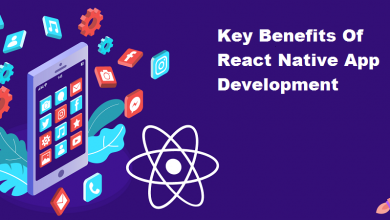NFT Marketplace – The Emerging Use Cases

A Short Introduction:
Since the first digital asset based on non-fungible token (NFT) was created in 2014, the buzz around these virtual tokens has been developing slowly until late 2021, when it reached its boom. Now, more applications of NFTs are being explored by the NFT community each day, where options are unlimited. A proportion of the success for NFTs can be attributed to the marketplace portals that helped in the trade. Currently, there are around 50 NFT marketplace platforms that sell NFT assets of different kinds. Generally speaking, there are marketplaces for common assets and niche-based items. Some examples of common NFT item selling portals include OpenSea, Solsea, and Rarible. Sandbox, Decentraland, Sorare, and Nifty Gateway are marketplaces catering to a specific audience. In this blog, we will see more about some use cases that can be utilized for developing NFT marketplaces.
● Multi-chain NFT Marketplaces
These are marketplace platforms that run on multiple blockchain networks to increase the customer base. The rise of multi-chain NFT marketplaces has resulted from the crypto community adopting faster, cheaper, and environment-friendly networks. At the same time, the platforms initially started operations on an earlier blockchain (mostly Ethereum). An important point to note is that no multi-chain NFT marketplace truly exists as they work only on two chains or work on another layer of their initial blockchain. Although costs associated with developing multi-chain marketplaces raise concerns among business owners, every penny spent will benefit them. There is a great welcome for such platforms from the crypto community.
● Celebrity NFT Marketplace
When NFTs first gained prominence in the latter half of 2021, the wave was due to creators posting on social media and celebrities boasting about their new digital possessions. Subsequently, a few stars who saw the potential of NFTs planned to start their own marketplaces (note that most of them are creators of some sort). Celebrities such as Snoop Dogg, Amitabh Bachchan, and Beeple (who got popular through NFT arts) have their own NFT marketplaces. This is seen as a way for celebrities to get a step closer to their fans. With expensive NFT items, they can even offer utilities such as meeting online or in-person, exclusive sessions, and more.
● Gaming NFT Marketplace
In-game NFT marketplaces have been in existence since the NFT boom as more blockchain-based play-to-earn games have come up. Games such as Sorare, F1 Delta Time, and Axie Infinity have some top-performing NFT marketplaces, which have been on the top of the marketplace charts as per data provided by Dappradar. Assets such as avatars, skins, weapons, vehicles, energy boosters, and virtual lands can be found in such marketplaces. People can sell their in-game properties, in addition to buying them as the game’s developers ensure deliberate scarcity. The move of making scarcity a gaming aspect has earned a lot for the gaming community as players can now stop worrying about spending for their favorite game.
● Cross-chain NFT Marketplace
Although multi-chain NFT marketplaces allow creators to reach a wider user base, they would need to mint their NFT items separately for each blockchain. This cumbersome process has resulted in the concept of cross-chain NFT marketplaces. With such a portal, it is enough for the creator to mint their NFT products once for all and then sell them across the blockchains supported by the portal. Currently, only a few businesses have worked in the domain. Examples include MetaNFT and Verlux. These marketplaces have enabled buyers to pay in different cryptocurrencies even if the seller requests another cryptocurrency. Suitable systems have been incorporated to facilitate such transactions, making these portals noticed shortly.
● Metaverse-based NFT Marketplace
Metaverses became famous in the mainstream since the tech giant Meta (formerly Facebook) announced its plans to delve into the virtual world. But, much before this, metaverse-based games such as the Sandbox and Decentraland have been providing chances for NFT marketplaces – both their own and developed by players. Such games aim to provide a decentralized gaming experience by providing only the platform and not rules. For example, one can buy a plot of land on the Sandbox and create their own world where they frame the features and rules to function. In Decentraland, players can purchase a virtual plot of land and develop an NFT marketplace for themselves.
● Physical Asset NFT Marketplace
During the initial NFT boom, it was speculated that incorporating NFTs into physical assets would be a game-changer in many sectors such as real estate. There have been a few housing projects that have raised capital through NFT fundraising. A notoriously slow adopter of new technologies, real estate transactions can become more transparent and eliminate instances of fraud if the sector adopts NFTs. One trouble coming up with the process would be to incorporate people. The NFT for physical assets can prove to be a revolutionary move if the sector understands the significance of blockchains and how real estate can gain a good name.
● Redeemable NFT Marketplace
It has been a high run for NFTs, and brands have been researching ways to get into the gala of these unique tokens. One option for most brands has been redeemable NFTs, which can be exchanged for a physical product in the brand’s outlet. The NFT of the product then can either be destroyed or become a collectible, and most brands prefer the latter to be spoken about in the virtual world for a long time. Several brands, such as the famous Warner Bros, have been in the redeemable NFT marketplace sector.
● Online Ticket NFT Marketplace
As everything is progressing from Web 2.0 to Web3 technology, some smart minds have come up with the idea of creating NFTs for tickets for events such as concerts and games. These marketplaces can aid in eliminating fake tickets while being easy to make and generating additional revenue through secondary sales. Such NFT tickets can also serve as a memory for fans who earlier had to preserve paper tickets safely amidst fears of being scammed. Even if the original buyer of the ticket could not attend the event, they can simply resell it to another person, and the smart contract records the transaction. This makes it easier for organizers to know who is present at their event, which could be helpful.
A Final Wrap
The above use cases give a new perspective into the already existing world of NFTs, with some of them even revolutionizing the way some sectors are perceived. In many cases, fast adoption is already on the way, and we will see others moving in very soon.





